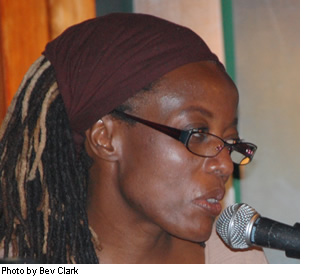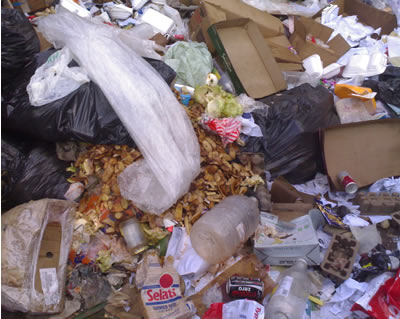Recently l had a quiet chuckle as l reflected on the role of trust in Zimbabwean politics. The reflection led me to recall a story my father often told me. The story goes something like this: There was a man in my father’s village who was notorious for poisoning the beer of colleagues as they drank in open mugs. The entire village feared him and no-one dared drink with him. My father shared this fear and mistrust but wanted to show this man but he told wanted to show this guy he trusted him, so, quite exceptionally they went for a beer drink together. During the course of drinking it became inevitable that my father had to respond to the call of nature and of course had to leave the notorious villager in sole custody of his beer mug. As he walked back to rejoin the notorious villager, my father was faced with a difficult situation: whether to trust that the villager had not tempered with his beer and just finish the beer in the mug or to reveal his deep mistrust by not finishing up his beer. Fortunately my father was lucky to have a brain wave; he feigned a drunken stupor, stumbled around and tipped the mug over, immediately removing the need to take the ultimate test of trust. Political parties in Zimbabwe may not be so lucky to escape taking the test of trust.
The question of trust was recently thrust to the fore of people’s minds by the tragic death of the Prime Minister’s wife Amai Susan Tsvangirai (may her soul rest in peace) in a tragic road traffic accident. While the causes of the accident will not be examined in detail here, leaving that to an independent investigator, suffice it here to state that the nation was immediately gripped with deep suspicion – and many, including yours truly, saw, not the hand of God, but the hand of ZANU-PF behind the unfortunate event. This, l believe, demonstrates fully the level of distrust that prevails in Zimbabwe.
Now that the Global Political Agreement has ushered in an inclusive government that necessarily requires ZANU-PF and MDC to work together for the good of Zimbabwe, one wonders whether there is sufficient mutual trust to enable the parties to work effectively together. Trust generally refers to a firm belief in someone or something or being confident about someone or something. Trust develops over time, based on solid past experiences that inform present levels of trust. Trust is not nurtured by beautiful speeches of flowery language; it feeds on consistent action to deliver on promises made.
If history is anything to go by, then it will be very difficult to trust ZANU-PF. Its human rights and social services delivery record when it was in government for the past 29 years is appalling and its propensity to break promises made to the people astounding to say the least. Distrust of ZANU-PF is therefore not paranoia, rather, blind trust of ZANU-PF maybe be an indication of serious amnesia. To what extent can ZANU-PF as a political party and partner in government be trusted by the MDC and by the people of Zimbabwe to deliver food, health, democracy and fundamental freedoms to the people of Zimbabwe? Or, is it a sign of mutual trust that MDC and ZANU-PF have joined hands in this inclusive government or a sign of desperation on the part of both parties? I hazard a guess that the inclusive government is not a reflection of trust but desperation. ZANU-PF and MDC are trying to work together under a dark cloud of mistrust while pretending that there is not a speck of mistrust in the bright blue sky of the partnership.
For the GPA or anything to work, or any relationship for that matter, there is need for a certain level of mutual trust to exist. For parties that have worked together for a long time in a spirit of opposition and mistrust, to build and raise trust to required minimal levels requires solid political will and a lot of hard work. It requires a change of attitude and a radical paradigm shift. ZANU-PF must demonstrate, by concrete positive actions, that it has turned over a new leaf and is now worthy of the nation’s trust.
At the moment, ZANU-PF’s trust account is in overdraft, there is need to work gradually and progressively to restore people’s confidence as well as the trust of the international community that Zimbabwe is open for clean business. The international community must see for them concrete evidence that, for instance, financial accountability has been restored at the Reserve Bank of Zimbabwe and that if aid is given it will reach intended beneficiaries and not vanish into thin air.
Unfortunately recent events in Zimbabwe do not contribute to the genesis and growth of trust; rather, they fan the fires of mistrust and suspicion and confirm to the unconverted that perhaps ZANU-PF, much like the proverbial leopard, will never changes its spots. Instead of reassuring the nation that abductions and acting outside the framework of the rule of law are a thing of the past, even as the parties and joining hands, a senior member of the MDC and deputy Minister of Agriculture designate is abducted and slapped with trumped-up and politically motivated charges. Not only that, in open violation of constitutional and GPA provisions, all parties to the GPA agree to swear-in more cabinet ministers than provided for. How can both the MDC and ZANU-PF persuade the nation to trust them that they are indeed putting the best interests of the nation ahead of their own? Again, quite oblivious of the need to build trust, President Robert Mugabe of ZANU-PF unilaterally sought to make appointments of Permanent Secretaries to all ministries.
Another interesting development that raises the question of trust once more is the fact that MDC members of cabinet have been allocated State security agents for their personal security. One really wonders whether these ministers feel more secure or more insecure as a result. My father used to tell me of a statement coined by opposition parties in the 1980s to refer to ZANU-PF. It says, ‘ZANU-PF Isinjonjo – tamba wakachenjera,’ which in English is ‘when in partnership with ZANU-PF, always be on the watch out – better sleep with one eye open.’
Finally, word of advice to ZANU-PF is that trust is earned and once earned must be guarded jealously. To earn the trust of the nation and indeed of MDC, there is need to demonstrate, through action, that there is a difference between the ZANU-PF in the inclusive government and the other one that belongs in that past. The MDC must also earn the trust of the nation that they have their bearings and priorities right and that they represent a change that brings bread to the table for all. Zimbabwe’s Finance Minister also needs to earn the trust of the international community from whom Zimbabwe is seeking aid, and one way of earning this trust is to clean-up the Reserve Bank and put in place water-tight systems of financial accountability while ensuring that both small and big fish found guilty of looting national resources are locked away. I end by quoting and respectfully agreeing with Arthur Mutambara who at his swearing in ceremony as the new Deputy Prime Minister said it was high time for political parties in Zimbabwe to “deliver, deliver and deliver.”



 Pamberi Trust hosted a literary discussion last night, on theme “Is writing craft or emotion?” The panelsits were Zimbabwean authors
Pamberi Trust hosted a literary discussion last night, on theme “Is writing craft or emotion?” The panelsits were Zimbabwean authors 






